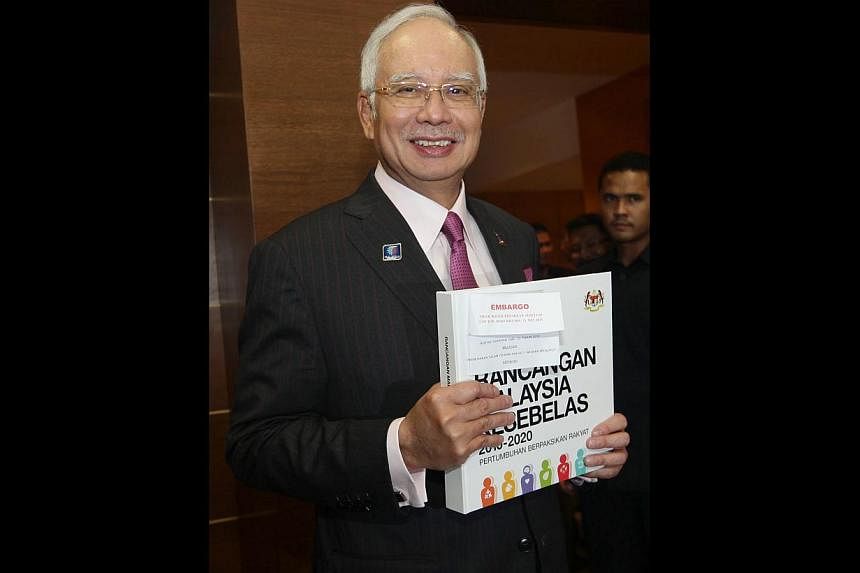Malaysian Prime Minister Najib Razak will focus on increasing the productivity of Malaysia's labour force, rather than pouring money into major projects, in the hope of transforming the country into a developed nation by 2020.
The national economic blueprint which he presented to Parliament yesterday targets labour productivity for the first time.
Known as the 11th Malaysia Plan (11MP), it sets a target of RM92,300 (S$34,200) a worker by 2020, up from RM77,100 today, in an effort to ensure Malaysia completes the transition to an advanced economy.
Datuk Seri Najib said the aim is "to break the country out of 'business as usual' practices and set Malaysia on an accelerated growth trajectory".
One of the ways the plan will attempt to do this is by improving the technical and vocational education and training (TVET) programme, which covers fields that would account for 60 per cent of the 1.5 million jobs to be created under the plan. It will also provide wider access to tertiary education for the poor.
Malaysia's labour productivity has failed to keep in step with its otherwise healthy economic growth. It is less than a third of that of the United States and just 56 per cent of South Korea's.
"TVET is there to try to ensure the workforce moves up the value chain and positions Malaysia well for the next stage of economic growth," said Macquarie's Asean economist P.K. Basu.
Malaysia has long tried to close the skills gap and struggled to stem a "brain drain" to other countries.
In a 2013 survey, global consultancy Grant Thornton found that 62 per cent of employers in Malaysia had difficulty finding workers with the right skills, while 48 per cent identified the lack of talent as a constraint for future growth.
Last month, Malaysia's employment portal JobStreet found that the top recruitment problem for companies was finding suitable candidates, with 69 per cent of firms facing the problem.
By equipping lower-income groups with skills, 11MP aims to reduce inequality and increase the wage-to-gross domestic product (GDP) ratio (a sign that an economy rewards good work rather than just capital investments).
It would also help balance the Budget by freeing the government from having to boost GDP through public spending instead.
But some analysts believe the expected results - such as doubling the average income of the bottom 40 per cent of the workforce - are unrealistic.
S. Rajaratnam School of International Studies senior fellow Oh Ei Sun told The Straits Times: "Education reform is urgently needed. To make a Malaysian university one of the top 100 in the world is unrealistic as long as the current education policy is continued. This makes the huge leap in household income over five years (targeted in the plan) unrealistic."
Kenanga Investment Bank economist Wan Suhaimie Wan Saidie said "more effort must be expended in addressing some of the structural issues that could hinder growth, such as better aligning the skill set of the working population to the needs of the labour market".
"To achieve most of the main 11MP targets is to be in an ideal environment - with political stability, high growth, low debt level, full employment and stable prices. Even in a best-case scenario, none of these would occur at the same time," he said.
Indeed, the market reacted with pessimism at the lack of big-ticket projects from Mr Najib. The Kuala Lumpur Composite Index slid to its lowest in two months immediately after 11MP was unveiled.
Although the RM260 billion allocated for development expenditure in 11MP is slightly higher than the RM249 billion spent in the previous five-year blueprint, it is a 22 per cent drop as a proportion of government revenue.

